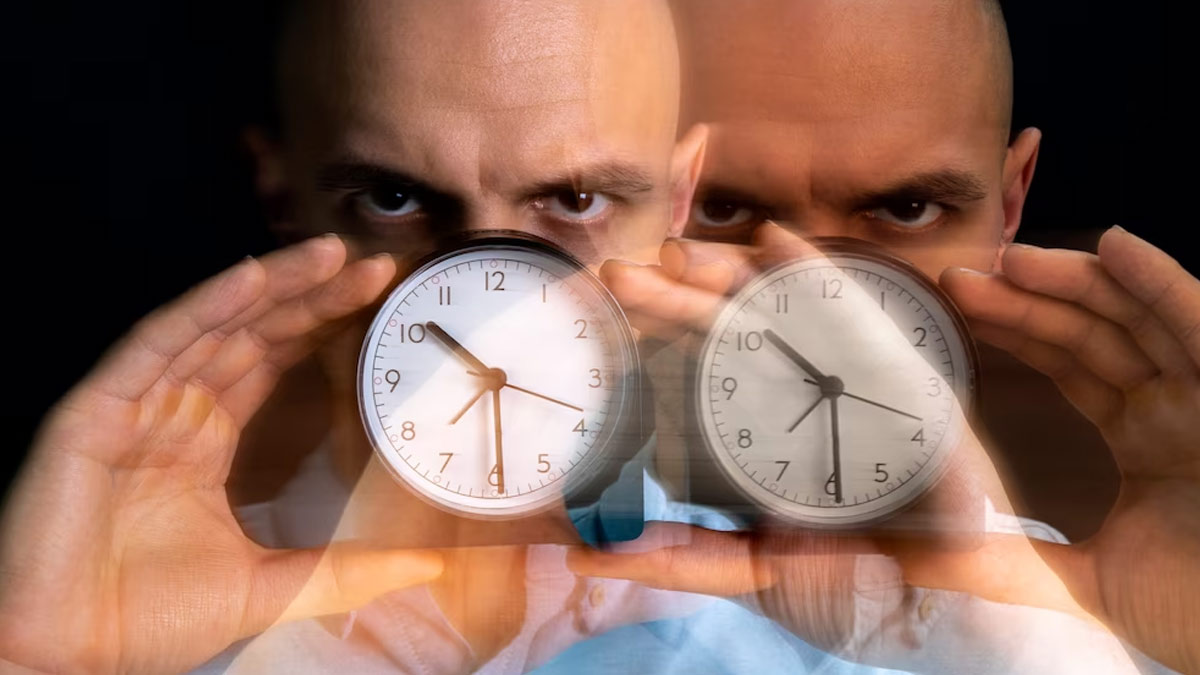
Have you ever felt as though you have already lived through a certain situation? Like being in the same room with the same people in an eerily similar setting? Only it is a completely new experience. This is called déjà vu. The real question however is not what it is, but why it happens. Speaking with the OnlyMyHealth team, Karishma Jethmalani, Neuropsychologist-Rehabilitation and Sports Medicine, Sir H.N.Reliance Hospital, helps unlock the science behind the phenomenon.
Table of Content:-
Also Read: Is Headache A Sign Of Low Blood Pressure? Here's How You Can Tell
What Is Déjà Vu?

“Déjà vu is a strange sensation of having already experienced the present moment, even though it is supposedly happening for the first time,” explained Jethmalani. She describes it as a glitch in your brain that tricks you into believing you're reliving a past event. However, it is usually fleeting, lasting just a few seconds. But it can leave you with a lingering sense of confusion and curiosity, she added.
In his book titled The Psychology of Deja Vu, Dr. Vernon Neppe, a neuropsychiatrist and head of the Pacific Neuropsychiatric Institute in Seattle, defined déjà vu as a “subjectively inappropriate impression of familiarity of a present experience with an undefined past.” This means that you feel like you’re experiencing something that you have experienced in the past, but are aware that it did not happen.
The Possible Reasons Behind Why It Occurs
While there is no known cause behind this strange phenomenon, Jethamalani shares certain theories that may provide some insight on why déjà vu occurs:
Memory Processing Glitch
According to the Neuropsychologist, sometimes, the brain's memory system encounters a temporary hiccup, causing a delay in how it processes and stores memories. “Imagine your brain as a computer trying to save a file. Just like a computer can experience a glitch that delays saving the file correctly, your brain can have a similar delay. So, when you encounter a new situation, the brain might mistakenly retrieve a memory from the past and associate it with the present, creating a strong sense of familiarity,” she explained.
Familiarity and Recollection Mismatch

Another hypothesis proposes that déjà vu might be due to a discrepancy between two processes involved in memory formation: familiarity and recollection. Jethamalani said, “Familiarity refers to a sense of recognition without specific details, while recollection involves retrieving specific contextual information.”
“Think of familiarity as recognising a familiar face, and recollection as remembering specific details about that person. Déjà vu occurs when the brain signals familiarity without providing the accompanying specific memories. It's like your brain saying, ‘Hey, I recognize this!’ but I can't remember exactly when or why. This mismatch between familiarity and recollection generates the sensation of deja vu, where you feel a sense of familiarity without being able to pinpoint the exact memory,” she added.
Also Read: Brain Supplements: Do They Boost Your Cognitive Health? Expert Answers
Brain Abnormalities
Certain neurological conditions, like temporal lobe epilepsy, brain lesions, or migraines, have been linked to more frequent déjà vu experiences. These conditions disrupt the normal functioning of the brain, leading to a higher likelihood of experiencing deja vu. It's like a glitch in the brain's electrical activity that triggers a feeling of familiarity, even when there's no logical reason for it.
Memory Retrieval Errors
According to Jethamalani, the brain is a vast library filled with memories. Sometimes, it makes mistakes while trying to remember things. She said, “When you encounter something new, your brain tries to match it with similar experiences stored in the library. However, this matching process can go awry. So, when you come across a new situation that bears resemblance to a past memory, your brain might mistakenly retrieve a memory that doesn't actually exist. This creates a false sense of familiarity, making you feel like you've already experienced something that is actually new to you.”
Bottomline
Next time you experience a déjà vu, Jethamalani says to remember that it's just your brain playing tricks on you, blending the past with the present in a puzzling but fascinating way. It's nothing uncommon and does not have any adverse health effects. However, it can be a sign of a neurological disorder. Consult a healthcare professional, if you experience headaches, weakness, shaking, loss of awareness, or confusion along with it.
How we keep this article up to date:
We work with experts and keep a close eye on the latest in health and wellness. Whenever there is a new research or helpful information, we update our articles with accurate and useful advice.
Current Version